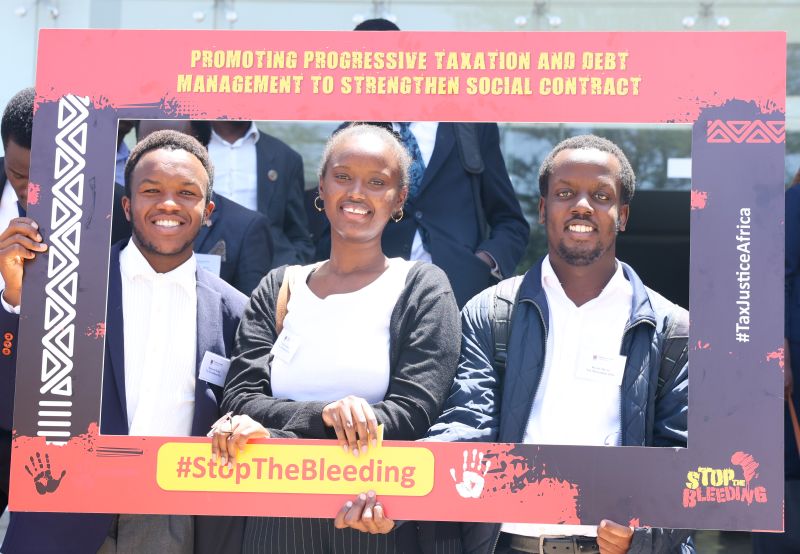Date

Law students from nine universities in Kenya call for pro-poor expansion of Kenya’s tax base through curbing deliberate tax evasion and fraud by businesses and individuals, reforming the corporate tax on local and foreign companies, and taxing the informal sector. This was revealed during the second edition of the Strathmore Tax Research Centre tax hackathon that took place from the 22nd to the 27th of March at the Strathmore University Law School.
Under the theme ‘Expansion of the Tax Base in Kenya’, participants presented practical solutions to enhancing domestic revenue mobilisation in Kenya and to stop the bleeding of resources by sealing loopholes facilitating Illicit Financial Flows (IFFs).
Taxation is the cornerstone of revenue generation for the Kenyan government which has implemented numerous changes to its tax system. However, the resulting complexity has created opportunities for illicit financial flows through tax avoidance and evasion, consequently eroding the tax base. This has worsened existing fiscal strains, compelling the government to rely more heavily on borrowing.
“Kenya's tax-to-GDP ratio has moved from being the highest among countries within the East African Community in 2012-2015 to being significantly below that of Rwanda and Burundi in recent years,” Mr Bosire Nyamori, Lecturer, University of Nairobi
The decline in Kenya’s tax-to-GDP ratio can be attributed to the huge informal sector, debt servicing, and incentives given to corporations to stimulate growth, as noted by Joy Ndubai, an international tax expert.
Aimed at promoting advocacy and scholarship in progressive taxation and ultimately creating a pool of young African professionals with a deep understanding of tax law, the teams that provided the most promising solutions were awarded internships in major firms working in the area of taxation and tax laws to further enhance their knowledge and experience.
The hackathon was supported by the ‘Africa Debt Campaign-Stop the Bleeding’ (STB campaign). The STB campaign seeks to mobilise, organise, and re-awaken advocacy on debt and influence policymakers at country and regional levels on prudent debt management and equitable investment in public services. At the heart of the campaign is citizen action which focuses conversations on the social contract by humanising the debt crisis from the lens of real day-to-day struggles of citizens.
The STB campaign is led by a Pan-African civil society organisations network who have come together at a time when debt servicing and unsustainable debt are adding to the bleeding of Africa’s resources. The organisations include TJNA, Africa Forum and Network on Debt and Development (AFRODAD); Africa Women's Development and Communication Network (FEMNET); International Trade Union Confederation Africa (ITUC Africa); Pan African Lawyers Union (PALU); Nawi-Afrifem Macroeconomics Collective (Nawi Collective); and Trust Africa (TA).
For more information about the STB campaign, please contact Felix Otiato at fotiato[@]taxjusticeafrica.net.